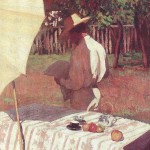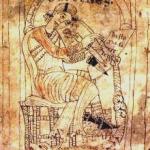
Zbigniew Herbert (1924-1998) is one of the two greatest Polish poets of the 20th century. He is part of a poetic duo, or duel, with Czeslaw Milosz. Milosz was more of a mystic, Herbert a skeptic. Milosz was almost always critical of Poland, whereas Herbert entrenched himself within the Polish tradition. I want to avoid the dreaded words “nationalist” or “patriot,” but Hebert was both in the best sense. It’s possible to be both without undercutting the universal reach of one’s writing. Michael Hofman, the translator of German literature (oh the irony!), confirms this what he said in Poetry some years back:
“Zbigniew Herbert died in 1998. He was a very great and idiosyncratic poet—something in me wants to say a peerless poet—and, it is reported, a perennial Nobel bridesmaid. It was ironic—and no doubt wounding—that during the period of his expectations, in 1980 and 1996, two other Poles of, as I see it, manifestly lesser gifts and importance, Czeslaw Milosz and Wislawa Szymborska, were chosen by the Academy and decorated by Carl Gustav.”
The rivalry with Milosz resurfaces in those comments. There’s even a quasi-mythological dinner party quarrel between the two poets documented by Cynthia Haven here in the post on “The Worst Dinner-Party Ever.”
More biographical and bibliographical information is available here.

“Mr. Cogito Tells of the Temptation of Spinoza” [Mr. Cogito is a persona Herbert frequently used to disabuse his readers of their Cartesian prejudices. While reading this poem it’s important to remember how much Spinoza fought the biblical notion of a personal God. Spinoza’s god was an impersonal force. Think back to Simone Weil’s comments in yesterday’s post here.]
Baruch Spinoza of Amsterdam
was seized by a desire to reach God
in the attic
cutting lenses
he suddenly pierced a curtain
and stood face to face
he spoke for a long time
(and as he so spoke
his mind enlarged
and his soul)
he posed questions
about the nature of man
–distracted God stroked his beard
he asked about the first cause
–God looked into infinity
he asked about the final cause
—God cracked his knuckles
cleared his throat
when Spinoza became silent
God spake
—you talk nicely Baruch
I like your geometric Latin
and the clear syntax
the symmetry of your arguments
let’s speak however
about Things Truly
Great
—look at your hands
cut and trembling
—you destroy your eyes
in the darkness
—you are badly nourished
you dress shabbily
buy a new house
forgive the Venetian mirrors
that they repeat surfaces
—forgive flowers in the hair
the drunken song
—look after your income
like your colleague Descartes
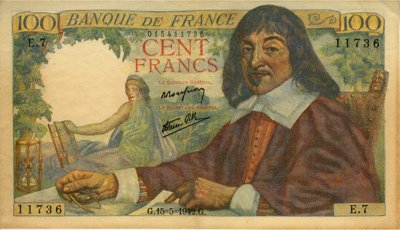
—be cunning
like Erasmus
—dedicate a treatise
to Louis XIV
he won’t read it anyway
—temper the rational fury
thrones will fall because of it
and stars turn black
—think
about the woman
who will give you a child
—you see Baruch
we are speaking about Great Things
—I want to be loved
by the uneducated and the violent
they are the only ones
who really hunger for me

now the curtain falls
Spinoza remains alone
he does not see the golden cloud
the light on the heights
he sees darkness
he hears the creaking of the stairs
footsteps going down
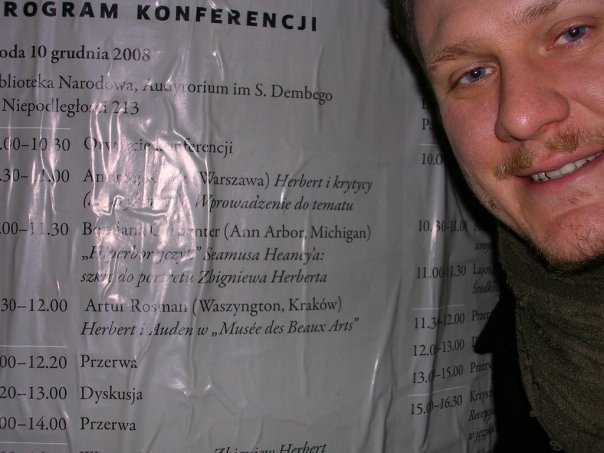
What follows is a short-short story, a favorite genre of Herbert’s. You can find some more of them on the Artful Dodge page here.
“Spinoza’s Bed”
by Zbigniew Herbert
IT IS AN amazing thing that our memory best retains images of great philosophers when their lives were coming to an end. Socrates raising the chalice with hemlock to his mouth, Seneca whose veins were opened by a slave (there is a painting of this by Rubens), Descartes roaming cold palace rooms with a foreboding that his role of teacher of the Swedish Queen would be his last, old Kant smelling a grated horseradish before his daily walk (the cane preceding him, sinking deeper and deeper into the sand), Spinoza consumed by tuberculosis and patiently polishing lenses, so weak he is unable to finish his Treatise on the Rainbow. . .A gallery of noble moribunds, pale masks, plaster casts.
In the eyes of his biographers Spinoza was unmistakably an ideal wise man: exclusively concentrated on the precise architecture of his works, perfectly indifferent to material affairs, and liberated from all passions. But an episode in his life is passed over in silence by some biographers, while others consider it only an incomprehensible, youthful whim.
Spinoza’s father died in 1656. In his family Baruch had the reputation of an eccentric young man who had no practical sense and wasted precious time studying incomprehensible books. Due to clever intrigues (his stepsister Rebecca and her husband Casseres played the main role in this) he was deprived of his inheritance. She hoped the absentminded young man would not even notice. But it happened otherwise.
Baruch initiated a lawsuit in court with an energy no one suspected him to have. He hired lawyers, called witnesses, was both matter-of-fact and passionate, extremely well-oriented in the most subtle details of procedure and convincing as a son injured and stripped of his rights.
They settled the division of the estate relatively quickly (clear legal rules existed in this matter). But then a second act of the trial unexpectedly followed, causing a general sense of unpleasantness and embarrassment.
As if the devil of possessiveness had entered him, Baruch began to litigate over almost each object from his father’s house. It started with the bed in which his mother, Deborah, had died (he did not forget about its dark green curtains). Then he requested objects without any value, explaining he had an emotional attachment to them. The judges were monumentally bored, and could not understand where this irresistible desire in the ascetic young man came from. Why did he wish to inherit a poker, a pewter pot with a broken handle, an ordinary kitchen stool, a china figure representing a shepherd without a head, a broken clock which stood in the vestibule and was a home for mice, or a painting that hung over the fireplace and was so completely blackened it looked like a self-portrait of tar?
Baruch won the trial. He could now sit with pride on his pyramid of spoils, casting spiteful glances at those who tried to disinherit him. But he did not do this. He only chose his mother’s bed (with the dark green curtain), giving the rest away to his adversaries defeated at the trial.
No one understood why he acted this way. It seemed an obvious extravagance, but in fact had a deeper meaning. It was as if Baruch wanted to say that virtue is not at all an asylum for the weak. The act of renunciation is an act of courage-it requires the sacrifice of things universally desired (not without regret and hesitation) for matters that are great, and incomprehensible.
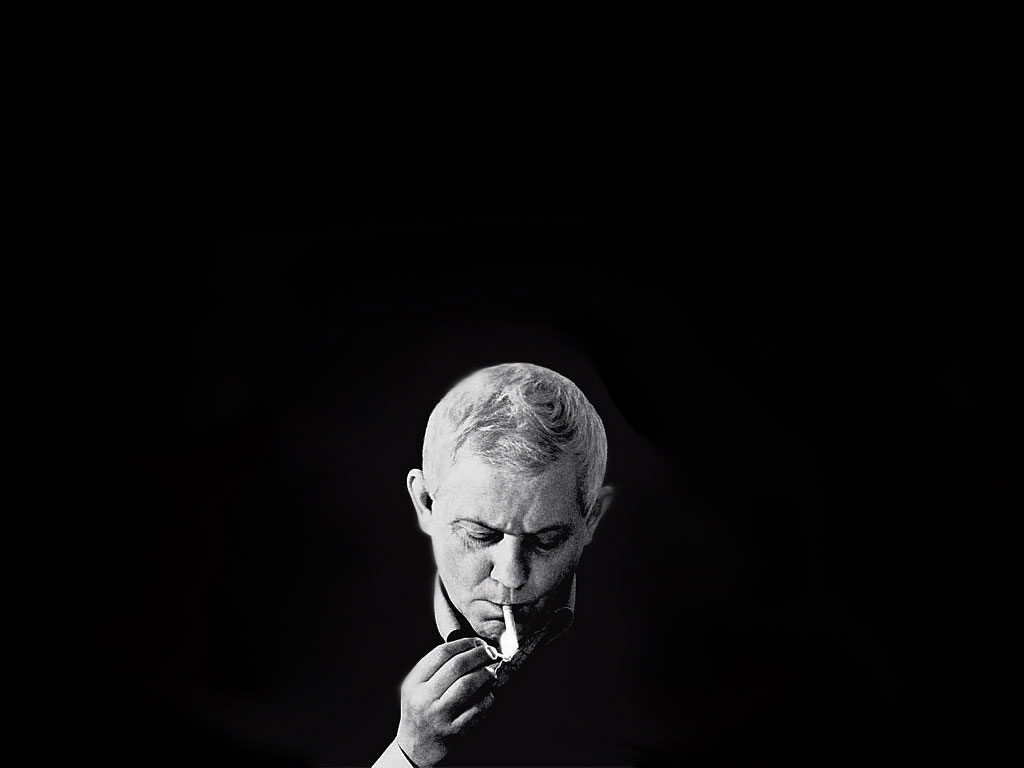
Finally, you might want to read a great article on the continuing influence of Spinoza upon what’s called the “turn to religion” in French philosophy. It’s by my professor Douglas Collins and has more citations per hour than anything else on the face of the earth. It’s called “L’Amour intellectuel de Dieu: Lacan’s Spinozism and Religious Revival in Recent French Thought” and I think it’s invaluable. Doug is also famous for getting some eccentric student reviews–see what I mean here.






